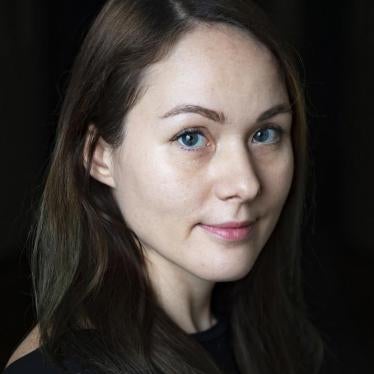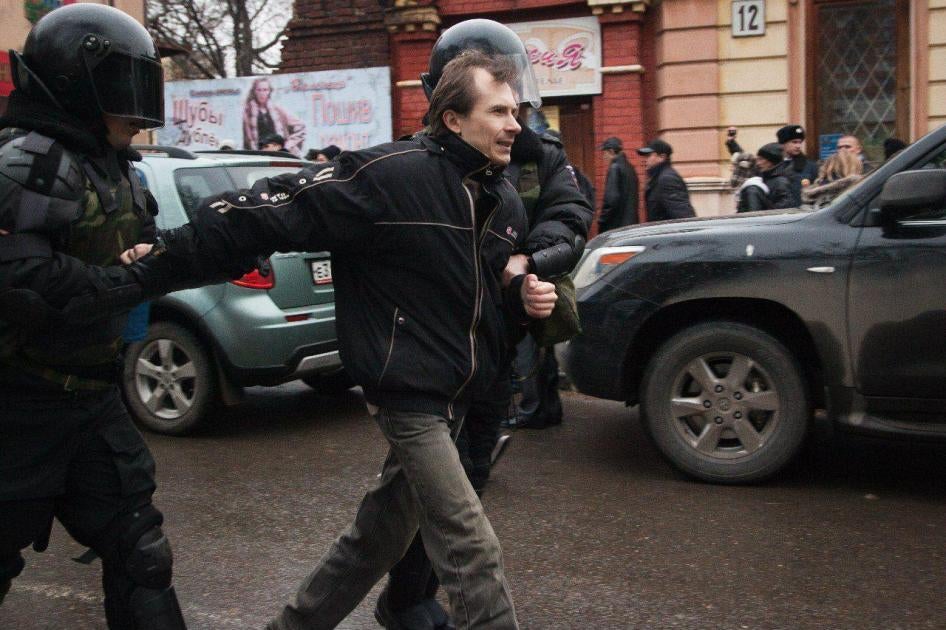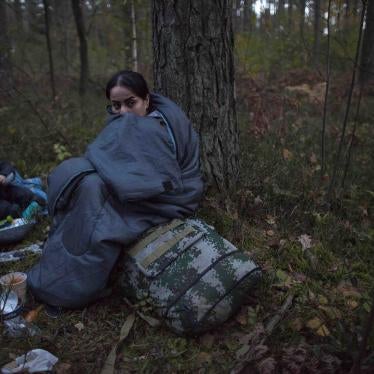Ukraine’s migration authorities apparently believe Russia is a safe and democratic country – which does not only sound odd in the current political context of the relationship between Kyiv and Moscow but will also greatly surprise those who have been following events inside Russia.
The reassuring assessment came from Ukraine’s migration authorities, who last year refused to grant asylum to Russian opposition activist Alexey Vetrov. Vetrov remains in Ukraine, awaiting the outcome of his final appeal, but has little reasons for optimism.
Observers at his court hearing, media covering his case, and Vetrov himself have said that the reason migration authorities provided for the refusal, which a first appeals court upheld, was that Russia is a democratic country that does not persecute government critics. This seemingly overlooks Russia’s clampdown on civil society in recent years.
Vetrov fled Russia in the spring of 2014, fearing persecution for participating in a series of anti-government protests that shook major Russian cities in December 2011 and early 2012. He actively participated in rallies in his home town, Nizhny Novgorod, protesting against state corruption and unfair elections. Upon learning that regional authorities had put him on a wanted list, Vetrov eventually went to Ukraine, where he requested asylum.
In December 2014, after the migration service denied his request, a court handed down a decision that he should leave the country. Vetrov appealed the refusal and three months later, lost his first appeal hearing. A final appeal is currently pending.
He is not alone. In the last three years, a number of Russians, including opposition activists, have requested asylum in Ukraine, and most have been rejected, according to migration experts.
For example, a year ago Ukraine’s migration service rejected Russian opposition activist Pyotr Lubchenkov’s asylum application, stating, according to Lubchenkov, that Russia’s legislation did not allow torture. In November 2015, Pavel Shehtman, a well-known protest activist from Russia, quoted on his Facebook page a document signed by a migration service representative stating, among other things, that Shehtman was denied asylum in Ukraine because freedom of assembly in Russia is guaranteed by Russia’s constitution.
Since Vladimir Putin returned to the Kremlin in 2012, the authorities in Russia have used a broad range of repressive tools to intimidate critics into silence. At first, it was brutal dispersal of protesters by the police, mass arbitrary detentions, harassment and intimidation of activists and their families, and smear campaigns in the media discrediting the protest movement. Then, the government pushed through parliament new draconian laws restricting freedom of assembly, association and expression to suppress discontent.
There is no shortage of grim examples of individuals in Russia who in recent years have had to pay the price for participating in peaceful protests or for openly holding a viewpoint critical of the authorities: from grossly disproportionate charges for Bolotnaya protesters to Zhenya Vitishko, environmental activist who lost two years of his life to an unfair jail sentence for graffiti critical of a regional governor; to Daria Polyudova, sentenced to a prison term for speaking her mind online.
Ukrainian authorities need to ensure that their system dealing with refugee claims fully respects the rights of asylum seekers, including fair examination of their claims to fear persecution upon return. It is prohibited under international law to return any refugees to a place where their lives or freedom would be threatened.
If the last three years are any indication, no government can reasonably claim that government critics are safe from persecution in Russia.










